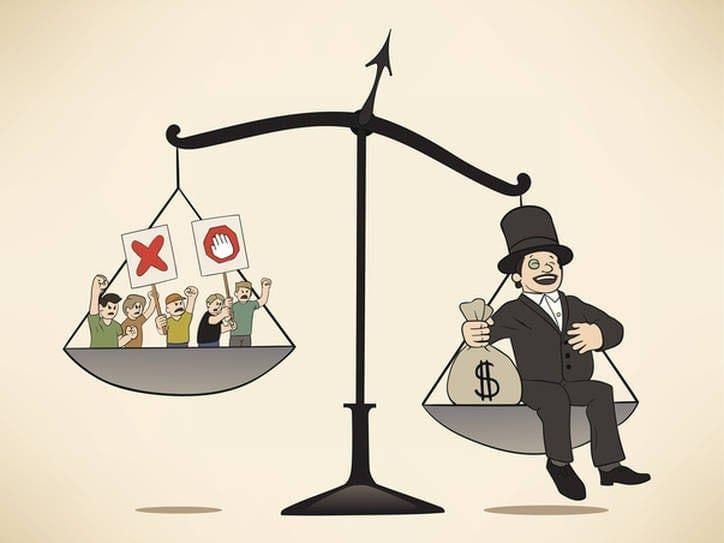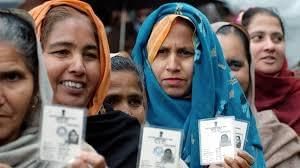NCERT Solutions for Class 11 Political Science - Equality
Q1: Some people argue that inequality is natural, while others maintain that it is equality which is natural and the inequalities which we notice around us are created by society. Which view do you support? Give reasons.
Ans: I support the view that equality is natural, and most inequalities we see around us are created by society rather than being inherent.
Natural Inequalities:
- People differ in physical, mental, and emotional traits, which are inborn.
- Some natural differences exist, but they do not determine a person’s social worth.
- Advances in medicine and technology have reduced the impact of some natural differences.
Social Inequalities:
- Most inequalities are created by society through unequal access to family resources, education, and opportunities.
- Discrimination based on gender, caste, race, or wealth is socially constructed, not natural.
- Social norms and values often make these inequalities appear justified, though they are unfair.
Conclusion:
- Equality is the natural state of human beings.
- Society can reduce inequalities through education, laws, and social reforms to ensure fairness for all.
Q2: There is a view that absolute economic equality is neither possible nor desirable. It is argued that the most a society can do is to try and reduce the gaps between the richest and poorest members of society. Do you agree?
Ans: Any answer supported with an argument or explanation would solve the purpose. It is strongly recommended that you prepare the solution on your own. However, a sample solution has been provided for your reference:
I agree with the view that absolute economic equality is neither possible nor desirable.
Reasons:
1. Natural Differences in Ability and Effort:
- People differ in talents, skills, and ambitions.
- Absolute equality would remove incentives for innovation, hard work, and productivity.
2. Practical Challenges:
- It is impossible to make everyone exactly equal in income, wealth, or possessions.
- Economic activities, entrepreneurship, and risk-taking naturally create differences in wealth.
3. Need for Incentives:
- Rewards for effort and skill motivate people to contribute to the economy.
- Without some differences, economic growth and progress may slow down.
4. Reducing Gaps is Desirable:
- Society can and should reduce extreme inequalities through fair taxation, education, healthcare, and social welfare.
- Narrowing the gap between the rich and the poor improves social harmony and reduces poverty.
Conclusion: Absolute economic equality is neither feasible nor desirable, but reducing inequality is essential to ensure fairness and opportunities for all.
Q3: Match the following concepts with appropriate instances: Ans:
Ans:
(a) Affirmative action: Banks offer a higher rate of interest to senior citizens.
Appropriate instances:
- Senior citizens have contributed to the development and service of society throughout their lives.
- Their age increases, but their income decreases due to medical and social needs.
(b) Equality of opportunity: Every child should get free education.
Appropriate instances:
- Every child should get an equal opportunity to get an education, i.e., no one should be discriminated against on any ground.
- This type of inequality is against the principle of equality.
(c) Equal Rights: Every adult citizen has a right to vote.
Appropriate instances:
- This principle is based on one person, one vote, one value, i.e., every adult citizen enjoys the right to vote.
- No citizen should be discriminated against on any ground to be exempt from enjoying the right to vote.

Q4: A government report on farmers' problems says that small and marginal farmers cannot get good prices from the market. It recommends that the government should intervene to ensure a better price, but only for small and marginal farmers. Is this recommendation consistent with the principle of equality?
Ans:
The recommendation is partially consistent with the principle of equality, but it also reflects affirmative action rather than strict equality.
Explanation:
1. Principle of Equality:
- Equality means all citizens should have equal rights, opportunities, and treatment under the law.
- Providing benefits to only a specific group may seem unequal at first.
2. Need for Special Support:
- Small and marginal farmers face disadvantages such as a lack of resources, market access, and bargaining power.
- Targeted government support helps level the playing field and ensures they are not left behind.
3. Affirmative Action:
- This is an example of positive discrimination or special measures to reduce inequality.
- It does not violate the principle of equality because it aims to create substantive equality, not just formal equality.
While the recommendation benefits only a section of farmers, it is consistent with the broader goal of equality, as it addresses structural disadvantages and promotes fairness in opportunities and outcomes.
Q5: Which of the following violates the principles of equality and why?
(a) Every child in class will read the text of the play on their turn.
Ans: It is not a violation of the principle of equality, as reading by turn ensures discipline and gives every child an equal opportunity to participate.
(b) The Government of Canada encouraged white Europeans to migrate to Canada from the end of the Second World War till 1960.
Ans: It violates the principle of equality because white Europeans were given preference over people of other races, discriminating based on colour.
(c) There is a separate railway reservation counter for senior citizens.
Ans: It is not a violation of equality since senior citizens are provided special facilities based on their specific needs.
(d) Access to some forest areas is reserved for certain tribal communities.
Ans: It is not a violation of equality because reserving access for tribal communities protects their livelihood, culture, and rights.
Q6: Here are some arguments in favour of the right to vote for women.
Which of these are consistent with the idea of equality? Give reasons.
(a) Women are our mothers. We shall not disrespect our mothers by denying them the right to vote.
(b) Decisions of the government affect women as well as men; therefore, they also should have a say in choosing the rulers.
(c) Not granting women the right to vote will cause disharmony in the family.
(d) Women constitute half of humanity. You cannot subjugate them for long by denying them the right to vote.
Ans: 
Arguments consistent with the idea of equality:
(b) Decisions of the government affect women as well as men, so they should have a say in choosing rulers.
Reason: This is based on equal political rights and participation, not on relationships or convenience.
(d) Women constitute half of humanity. You cannot subjugate them for long by denying them the right to vote.
Reason: This is consistent with equality because it recognises women as equal citizens with the same rights as men.
Arguments not consistent with equality:
(a) Women are our mothers. We shall not disrespect our mothers by denying them the right to vote.
Reason: This is based on sentiment or familial roles, not the principle of equality.
(c) Not granting women the right to vote will cause disharmony in the family.
Reason: This is based on practical convenience, not on equal rights.
Only arguments (b) and (d) reflect the principle of equality, as they treat women as equal citizens rather than relying on sentiment or social convenience.
|
151 videos|780 docs|202 tests
|
FAQs on NCERT Solutions for Class 11 Political Science - Equality
| 1. What is the concept of equality in the context of the article? |  |
| 2. How does the article discuss the importance of equality in society? |  |
| 3. What are some examples of inequality mentioned in the article? |  |
| 4. How can individuals contribute to promoting equality in their communities? |  |
| 5. How does the article suggest addressing systemic inequalities in society? |  |






















